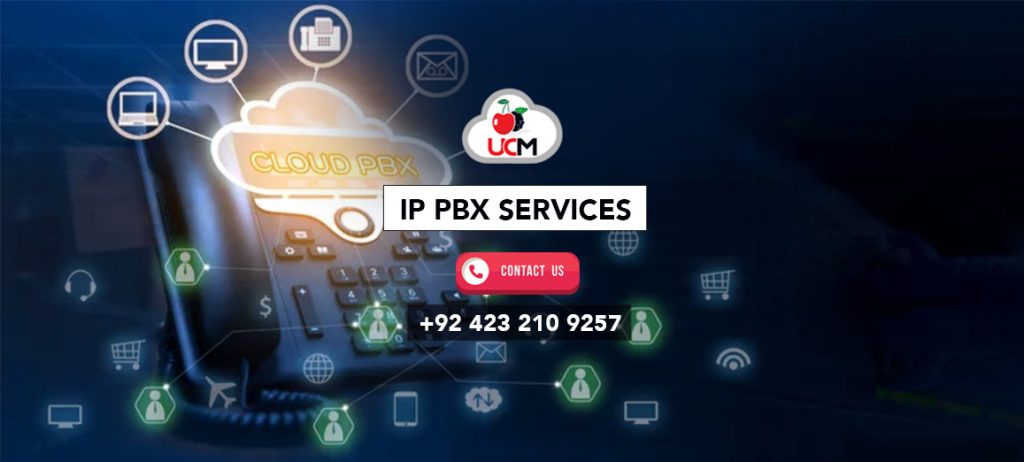What is Customer Service Management Software?
Significance of Customer Service Management Software
The era of competing over products and prices has ended with businesses solely focused on customers the experiences of which can make or break a business image. Offering the best customer support is not an option but becomes a requirement due to heightened customer expectations. For this reason, businesses are searching for solutions to manage future customer relationships. They are looking for how to provide the best experiences that persuade leads to convert, inspire existing customers and keep them returning for more sales. This feat is possible to achieve with Customer Service Management Software.
What is Customer Service Management Software?
Effective customer support is essential for your brand’s success, reputation and growth. Customer support software can increase the efficiency of your customer service teams and enable them to resolve customer queries quickly. Consider it as a second brain of your teams that streamlines workflows and ensures the first call resolution rate by assigning customer requests to designated agents. Companies can also track the status of customer requests and monitor team performance. Moreover, they can provide a smooth and satisfying customer experience during customer interaction through email, web, social media and text messages.
Which Strategies Can Help Companies in Improving Service Quality?
1. Careful Planning: Companies must plan their customer service structure after monitoring what works best for their business. Your teams need to follow best practices and guidelines to deal with different types of customers. They can get customer insights through CRM to manage customers efficiently throughout their journey with your business.
2. Goal Setting: Identifying strategies and setting goals is important to achieve them. Businesses can improve customer satisfaction scores through surveys and chatbots. This insight helps them to understand customer needs and opinions about your product or service for quality enhancement.
3. Use the Right Automated System: Companies can automate customer service, support, sales and marketing tasks for maximum efficiency. They can use solutions that collect tickets from all touchpoints and distribute them to the best agents for fast resolution. In addition, the latest customer information empowers customer service agents to provide smarter and more relevant solutions.
4. Measure Metrics: Customer management software provides access to key metrics like customer satisfaction score and first-call resolution rate. This data will help you understand what works best and which areas need improvements. Through these metrics, businesses can easily achieve their desired goals.
Which Tools Are Effective For Customer Service Management?
Companies can enhance their agent’s performance by providing tools to heighten customer service. These tools improve response time, satisfy existing customers and attract new ones.
1. CRM Software
It is an efficient tool to organise and maintain interactions with customers. This software stores all customer information including contact details, call records and purchase history. Your teams can easily track sales data from a central database and edit or update information quickly. Integrating a management system with the CRM system benefits your teams and enables your agents to offer personalised services.
2. Marketing Automation
The automation of many marketing tasks increases the efficiency of your marketing campaigns. The marketing automation tool allows you to send scheduled text messages or emails. It makes running marketing campaigns less labour-intensive. Your teams can set different criteria to automate the process of personalised messaging. Meanwhile, the analytics feature allows you to see the data of your marketing campaign and analyse performance.
3. Omnichannel Workflow Management System
Another important tool for tracking customer support tickets across various platforms is the omnichannel workflow management system. For instance, a customer emails your restaurant for pizza, gives feedback on a survey form and posts it on social media. The restaurant owner can see customer feedback on all platforms through omnichannel software.
4. Chatbots
This AI program can simulate a human conversation. Chatbots are a great way to address simple customer service issues like less technical support and order tracking. It increases the efficiency of your business when your customers can solve their service tasks without a live agent. This technology allows businesses to provide round-the-clock service in multiple languages. Your teams can use this time to address more complicated issues.
What are the Benefits of a Customer Management System?
1. Improves Customer Lifetime Value
This software is an efficient way to improve customer experience with your customer service teams. Customers have positive experiences with your team trust and value your business. You can easily expand your customer base and create opportunities for your teams to promote cross-selling and upselling.
2. Ensure Seamless Communication with Customers & Colleagues
Customers and clients can communicate with agents in real time through live chat. This way they can easily get help for their customer service issues. It also makes things easier for your customer service teams that can communicate and respond better to customer service requests.
3. Provide a Centralised Database for Customer Information
The reason why customers are put on hold is due to a high influx of customer service requests and time to look at customer details. Before managing complex interactions, sales agents search for communication history, customer details and service requests. Easy and quick access to customer information in the centralised database by integrating customer service management software with the CRM system enhances efficiency.
4. Improves Agent Performance
Timely resolution of customer service requests is crucial for exceptional customer service. By leveraging customer management software, your teams get access to prewritten email templates that save time on writing responses. Moreover, teams can route service requests to the concerned person or department to solve the issue immediately.
5. Reduce Operational Costs
As this software automates many customer support processes like agent responses and request prioritisation, it reduces the chances of errors and lowers operational costs. Your customers can get answers to their queries and solve their simple technical issues 24/7. This helps them feel more satisfied and improves your brand image.
Final Thoughts
Indeed, keeping your customer base happy can increase your profit and empower you to outshine competitors. By leveraging Customer Service Management Software, companies can address customer needs efficiently and improve satisfaction scores. It is an excellent way to boost customer loyalty and business success by supporting customers before and after purchase to enhance their experience with your business leading to long-lasting relationships. Do you want control over your company’s reputation? Reach out to CherryBerry UCM professionals for expert guidance and keep the important asset of your company – the customers – satisfied.
Why is The IP PBX System Future For Business?
Why Do You Need an IP PBX System For Your Business Communication?
Every business evolves, grows and expands over time and never stands still so do your customer expectations. Effective internal and external communication is paramount to keep your business on the fast pace of progress, which is possible with the fusion of advanced technology, operational excellence and futuristic charm. Enter the IP PBX System as a game-changing technology that has come a long way from traditional PBX systems in terms of better connectivity and functionality due to integration with artificial intelligence. Let’s dive deep into the benefits and importance of IP solutions for remote teams and how they can future-proof your business.
A Journey to the Evolution of Business Phone Systems
1. Landlines as Foundation of Business Communication: Earlier, landline phone systems were used for business communication that provided limited features and functionality. They were considered reliable means for incoming and outgoing voice communication within a fixed location to connect with customers and partners.
2. The Advent of PBX Systems: As technology continues to evolve, traditional PBX systems come into the market as a better alternative to landlines. Companies can manage multiple lines and incorporate extensions easily with these systems. Your agents get the potential to forward calls or send/receive voicemails. It was the first step towards customised and flexible business tools.
3. Smartphone, Internet & VoIP Revolution: The arrival of the internet and mobile technology proved a game changer with business communication no longer constrained to desk phones. Your teams can collaborate virtually from whenever, wherever required through internet access leading to increased productivity and efficiency. Moreover, smartphones revolutionise business interactions by bringing email and other apps to the palm of your hand.
4. AI & IoT Integration: The future of communication is promising with the integration of artificial intelligence and the Internet of Things. IoT-based communication devices and AI-enabled virtual assistants will make business interactions more efficient and intuitive.
Understanding The Basics of IP PBX System
For years, PBX (private branch exchanged systems have served as internal business telephone systems to manage incoming and outgoing business calls. The latest IP (Internet protocol) telephony has replaced the traditional systems that allow establishing calls over the Internet connection. The main aim of IP systems is the management of the incoming and outgoing call traffic of a business. Meanwhile, VoIP solutions have made communication easier and streamlined. Moreover, businesses using IP technology can manage voice calls and other VoIP communication channels through a single network supporting better flexibility, scalability and agility.
Which Type of IP IPX is Suitable for a Business?
Making the right choice while moving from traditional legacy systems can be challenging for businesses. On-premises and cloud IP PBX are two common systems in practice that are descendants of legacy systems.
1. Analog PBX: Traditional or legacy PBX are the oldest known PBX systems that need physical equipment and are housed on-premises. They operate through copper-based telephone lines connected with a PBX box and kept in the office building. Analog systems are considered outdated today because they offer fewer features and integrations than the latest VoIP and cloud-based systems. Moreover, the PBX box contains a telephone switchboard that allows your team to communicate by connecting phones and interface between PSTN lines and private networks.
2. On-premises IP PBX: This IP system is placed in your office premises and can utilise an existing internal network and internet connection. It contains more advanced features than legacy PBX systems like call routing, IVR, conferencing, video calling and more. Meanwhile, the on-premises system works best when integrated with SIP trucks offering better resilience and more stable sound quality.
3. Cloud PBX: Virtual PBX is a digital system managed by a service provider and hosted in the cloud. A hosted or cloud PBX runs over an internet connection and benefits from PBX system functionality. This system offers more scalability and flexibility for businesses. Thus, they can integrate their phone systems with business CRM to make processes more efficient. In addition, it serves as a unified communication platform to streamline business communication processes.
Why Switch to Cloud-Based IP Systems? Top Reasons
Moving to a VoIP PBX system is wise for businesses looking to reduce their communication costs. These latest systems offer better reliability and allow you to go global or scale considering your business needs. Let’s learn about some important reasons that might convince you to switch.
1. An Easy-to-Use & Manageable System
Whether choosing an on-premises or cloud-based IP PBX, the system is managed through a web-based dashboard. It also means that you should not need to worry about maintenance, customisation and upgradation because the service provider is responsible for all this. This saves significant costs and time for your teams.
2. Quick to Deploy & Install
The IP system runs as software so you can install it more quickly and use it instantly. Your teams with initial IT knowledge can install the system and save time spent on hiring IT professionals. As this system works through the Internet, the cost of long-distance and international calls also lowers.
3. Allow Scaling Up & Down
Scaling is difficult in legacy systems while easier in cloud-based VoIP systems. Small businesses and established enterprises can invest in the system to stay dynamic. They can add extensions and phones according to their business needs and provide a friction-free experience to their customers.
4. Support Remote Working
The latest VoIP systems make your sales and marketing agents more efficient and productive. They can deliver a more seamless customer service experience through this unified communication system. Many service providers offer softphones and applications for mobile devices that enable your remote workforce to stay connected with customers and team members from anywhere. This also fosters a collaborative environment and keeps all your teams on the same page.
Final Thoughts: Make the Move
Indeed, a cloud-based IP PBX System has become a solution of choice for businesses today to manage incoming and outgoing calls. These systems have come a long way from legacy and wired systems as the evolution of the internet and the integration of AI has increased their efficiency. Businesses can keep their teams together, manage internal and external communication beyond office boundaries and improve business connectivity. In addition, these secure, flexible, futuristic and scalable solutions have made relocation easy as nothing needs to move during the process. Are you looking to switch from a legacy system to the latest cloud PBX? Contact CherryBerry UCM right away for expert assistance to grow and expand easily.
Manual Dialling vs Auto Dialer Solution: Which is Better & Why?
How Does An Auto Dialer Solution Add Efficiency to Your Outbound Campaigns?
Today, every second counts in the sales process as time is money. Your sales and marketing teams must reach maximum leads to achieve their sales targets. For this, they battle constantly against the clock. The major reason that lowers your agent’s speed and talk time is the idle time between calls during manual dialling. Thankfully, the latest Auto Dialer Solution can make your agents more efficient and productive increasing their talk time by 200-300%. For this reason, the dialling method you choose plays a great role in making your outbound campaign successful. Let’s learn how technological advancements and the integration of AI in the latest dialling solutions have made it a norm in the call centre industry.
What is Manual Dialling in Call Centres?
Over the years, call centre agents have used manual dialers to contact leads and prospects. They dial numbers manually from the provided list one by one. Most small to medium call centres even start their business from traditional dialers and they are still in practice in many areas. Your sales or marketing agent has to wait for the call to connect which can also be wrong, busy or reach voicemail or answering machine. Moreover, manual dialling cannot filter calls therefore it is a less efficient option to manage outbound campaigns.
Understanding Auto Dialer Solution
Now you have guessed that auto dialer is a software that automates the entire dialling process. It is an efficient way to establish connections with leads and customers in outbound call centres. These dialers dial contact numbers from the provided list automatically and connect agents to live calls. It also means these dialers can skip unproductive numbers, busy tones and answering machines. This increases your agent’ talk time and boosts their efficiency. They can spend more time establishing relations with existing customers and converting leads. Hence, your business efficiency, performance and ROI depend on the dialer and its characteristics.
Reasons Why Auto Dialer Software is a Better Option for Call Centres?
1. Support Dialling Process
Manual dialling requires agent efforts to initiate outbound calls. This method gives them control over their sales and marketing campaigns. Conversely, auto-dialers are available in the market in many modes, they support progressive, preview and predictive dialling. Meanwhile, agents can also easily switch between different dialling modes considering the needs of marketing campaigns.
2. Provide Access to Customer Information
Your sales and marketing agents need to access customer information from a computer or paper record in manual dialling. The process also involves extra time and effort for your agent to decide which customers to be contacted first. However, contact numbers are stored in the database of auto dialer software which the system dials automatically in sequence. Your agents can access and preview customer information on their screens before and during calls to manage complex interactions efficiently.
3. Handle Large Call Volume
Modern call centres cannot rely on manual dialers to manage a large number of outbound sales calls. Your agents can hardly handle a high volume of calls by dialling manually. Auto dialers help call centres in managing large-scale sales and marketing campaigns. For instance, predictive dialers can determine when your agent will be free to take the next call lowering the idle time between subsequent calls. In addition, the progressive dialer dials the next number immediately as the agent wraps the previous call.
4. Improves Agent Productivity
Your agent dials all numbers manually and waits for the call to connect with a live person in the manual method. Conversely, cloud-hosted auto-dialers contain voice detection technology to detect answering machines. Thus, the system transfers only live calls to agents and enables them to manage the surge in outgoing calls efficiently. Meanwhile, CRM integration allows viewing of customer information and offering personalised interactions.
Things to Consider While Choosing the Right Dialer for Your Business
1. Size of Sales & Marketing Teams
If your call centre consists of large sales and marketing teams, an Auto Dialer Solution is the best option to enhance efficiency. Likewise, these solutions also allow scaling up or down so you can grow and expand easily. However, manual dialling saves significant costs and ensures more personalised services during sales interaction if you are a startup or have a small sales team.
2. Target Audience
It is important to consider your target market and the level of personalisation needed during sales interactions. For instance, manual dialling is a suitable option if you aim to develop strong business relationships. In the case of a less sensitive target audience to the personal touch that values efficiency and speed, auto-dialling solutions are the best choice.
3. Business Goals
The primary goal of many businesses is to increase efficiency and streamline the sales process. They can achieve their business goals through auto-dialer technology. Similarly, some companies value meaningful customer relationships through personalised services. Manual dialling is suitable for such companies.
4. Budget
Before investing, companies should evaluate their budget and auto-dialer cost. This is because they require higher investment to improve efficiency, productivity and return on investment (ROI). Meanwhile, manual dialers are low-cost solutions.
5. Integration with Other Systems
Integration with manual dialling is difficult but possible. You should go for auto-dialling software that can easily integrate with your existing sales and marketing tools. For instance, CRM integration provides your teams access to updated customer information which they can use to deal with personal touch. It enhances the overall efficiency of your sales and marketing process and makes lead management and performance tracking easier.
Exploring the Sectors Where Cloud-Based Auto Dialers are Doing Wonders
Cloud-based dialers are an efficient way to strengthen the communication between customers and the company. The service-oriented businesses can leverage the potential of this technology to reach the maximum number of customers and automate appointments and reminders. They can convert leads into paying customers through personalised interactions using different dialling modes. Following are the common industries leveraging the power of auto-dialers.
- Travel and Tourism Industry
- Telemarketing Industry
- Banking & Finance Sector
- Debt Collection Agencies
- Insurance Companies
- Automotive Industry
- Healthcare Sector
- Political Parties
- Hospitality Industry
Closing Thoughts
Indeed, the Auto Dialer Solution has transformed how your sales and marketing teams manage interactions with leads and prospects. These solutions enable them to reach maximum prospects increasing the chances to convert through increased talk time and avoiding unproductive numbers. The selection of the right dialling solution is highly critical to making your outbound sales and marketing campaigns successful. Thus, if you are looking for assistance in choosing the right dialer for your business, don’t forget to reach CherryBerry UCM for expert guidance.
What are the Advantages of Cloud-Based Call Center Solutions?
Why Modern Businesses Need Cloud-Based Call Center Solutions?
How can you run successful sales and marketing initiatives, manage the large influx of inbound traffic and improve customer service experience? Do you need help with several challenges as traditional call centre setup hinders business growth and expansion? If so consider transitioning to Cloud-Based Call Center Solutions to enhance your business communication, widen your outreach, keep customers satisfied and improve ROI. Switching to online solutions allows integration with other tools and apps that streamline overall business operations and increase your team’s performance. Here is how advanced solutions can put your business on the fast track to growth.
What are Cloud-Based Call Center Solutions?
As the name implies, the entire call centre infrastructure is managed and hosted through a cloud other than a traditional hardwired telephone system. These web-based solutions allow your customer service, support, sales and marketing teams to receive and initiate calls through the internet. Cloud-based call centres are not restricted to any place or only one server. The cloud facility makes all features available for your in-house and remote teams regardless of physical location. Meanwhile, the latest voice-over-internet-protocol (VoIP) phone systems streamline customer interactions through advanced integrations. It also means businesses can provide more customer-friendly and efficient service.
How Are Cloud Solutions Better Choice Than On-Premises Solutions?
On-premises solutions need regular and costly upgrades including established networks, IT experts, servers, integration support and hardware. This is why these traditional systems are hard to manage due to initial expenses while a dedicated office space is also required for servers. Likewise, there is a need to upgrade these systems within 5-10 years due to technological advancements. Conversely, cloud-based call centres are low-cost solutions that manage everything online without physical hardware. Your cloud service provider is responsible for maintenance and upgrades while you can easily scale and grow with your business needs.
What are the Essential Features of Cloud Software?
1. Call Routing: This call centre software feature automatically routes incoming customer calls to the most appropriate agents reducing long wait times and enhancing efficiency.
2. Automatic Call Distribution: Call centres can distribute calls evenly among customer service, support, sales and marketing teams to increase performance and timely response.
3. Caller ID: Teams can identify the callers and get their contact information through this feature. It helps them to offer personalised interaction.
4. Reporting & Analytics: Businesses can track their call centre and agents’ performance through data analytics. They can use these insights to identify coaching needs and improve services.
5. Integrations: Cloud software allows integration with other tools like CRM systems. This integration supports your agent during complex interactions and boosts conversions.
6. Speech Analytics: Call centre administration can analyse the calls between agents and customers. It helps them to judge customer satisfaction levels and boost positive improvements.
7. Omnichannel Communication: Companies can interact with their customers in their preferred mode of communication to reach customers efficiently. Cloud technology in integration with CRM software stores all customer interaction data in one place to make things easier for your teams.
How Cloud-Based Solutions Are Beneficial For Your Business?
1. Offer Greater Scalability
Cloud-based Call Center Solutions allow businesses to easily scale up and down considering their fluctuating and seasonal incoming and outgoing call needs. They can do it without paying extra costs for installing complicated software or purchasing other hardware.
2. Less Expensive Solutions
It is important to note that on-premises call centre systems require significant costs for setup and maintenance. They also have to invest in advanced expensive technology, infrastructure and software. The latest cloud solutions allow integrations with different business tools and applications. This is why cloud solutions are cost-efficient solutions for businesses with tighter budgets.
3. Ensure Security & Reliability
Another perk of cloud-based call centres is their round-the-clock availability. Call centre administration and teams with credentials can access business data whenever, and wherever required. These reliable solutions store data in the cloud ensuring advanced security against malware and data breaches. Your data remains secure and accessible even during disasters and emergencies.
4. Enhance Customer Service Experience
Customers value businesses that quickly resolve their problems. Integrating the cloud with other systems and tools like CRM systems gives your agents access to all data. They can use this data to offer personalised services and resolve customer issues across multiple channels.
5. Improves Omnichannel Interaction
The latest solutions allow call centres to offer communication on several platforms rather than just mere calling. Meanwhile, your teams can also handle communication easily making the cloud systems more beneficial than their on-premises counterparts.
6. Facilitate Remote Work
Businesses can employ remote teams from a global talent pool to improve the quality of their services. Your agents can access all tools from anywhere and communicate with in-house teams to boost collaboration. They just need an internet-connected device to do their job efficiently.
What Else to Expect From Call Centre Software?
7. Reduces IT Needs
Advanced cloud solutions do not rely on on-premises servers or hardware therefore no IT maintenance is required. This frees up your teams’ time to invest in completing more important projects and focus on core business competencies. Your cloud service provider is responsible for security and upgrades.
8. Allow AI Integration
Your business data is stored in one or interconnected clouds. Companies can take advantage of machine learning and AI to automate processes and get useful insights. They can use predictive analytics to find out inefficiencies and future-proof their business. Moreover, you can also deploy new tools leveraging the potential of the cloud like chatbots, virtual assistants and more to streamline your communication process.
9. Provide Superior Disaster Recovery
There is a risk of data loss during power outages or natural disasters in on-site solutions. Thankfully, you can continue business operations with minimal disruptions using cloud solutions. They can also reduce the risk of downtime keeping their data secure in the cloud. Meanwhile, the absence of physical infrastructure and energy consumption reduces carbon footprints.
Wrapping Up: A Way Forward
Indeed, Cloud-Based Call Center Solutions are the future of customer service due to flexibility, scalability and cost-efficiency. These solutions are ideal ways to run your sales and marketing campaigns successfully and in line with future technological advancements. On top of that, they improve your internal and external business communication and expand our outreach. Are you considering transitioning from on-premises solutions to cloud-hosted platforms for excellence in customer service? Reach CherryBerry UCM for innovative solutions to outshine competitors!








